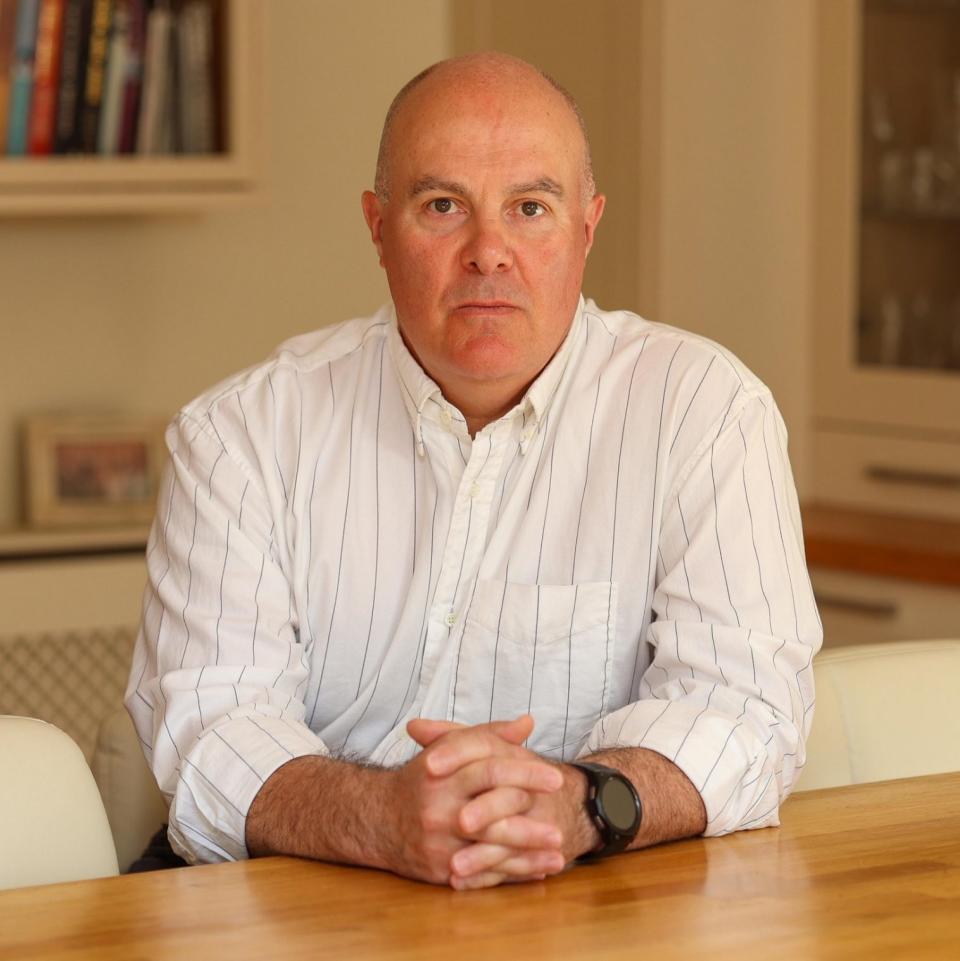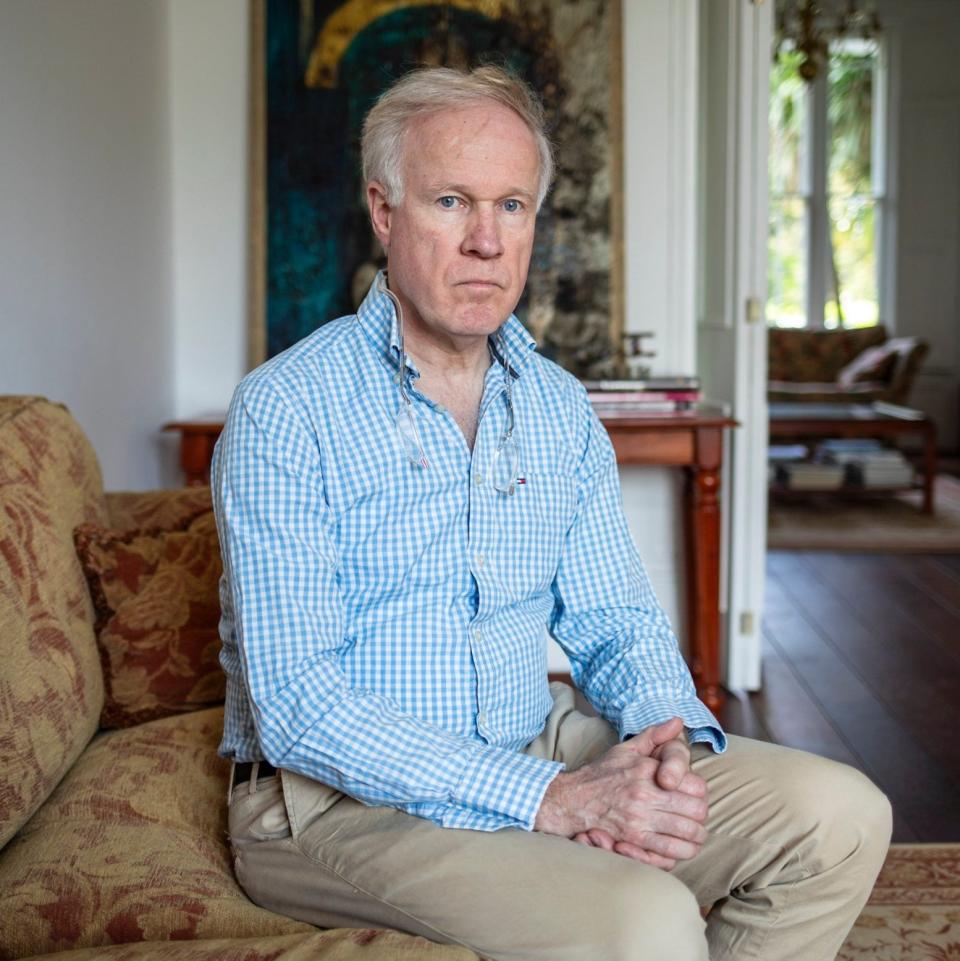The four-step ‘playbook’ the NHS uses to break whistleblowers

NHS managers use a playbook of tactics to silence whistleblowers that is “designed to break you”, according to doctors who have tried to raise patient safety concerns.
A Telegraph investigation has found so many similarities in the way different NHS trusts and clinics deal with whistleblowers that many doctors believe the problem is systemic.
The doctors complain of bullying and harassment, both from managers and colleagues, which they claim creates a culture of cover-up.
Law firms and private investigators are also often brought in to investigate the whistleblower, who is then told they are being suspended.
Years of internal investigations, disciplinary hearings and legal battles typically follow, until medics succumb to the personal, professional and financial pressure and quit.
Many doctors who have decades of expertise in their field and distinguished careers are reduced to depression and suicidal thoughts by the situation they find themselves in.
Some sign non-disclosure agreements, enabling them to return to work if they promise to keep their mouths shut, others try to fight back through the High Court or employment tribunals, and others leave the NHS for private hospitals or quit the medical profession altogether.
The pattern is not dissimilar to the punitive measures – including suspensions and contract terminations – employed by the Post Office against its sub-postmasters and employees during the Horizon IT scandal.
Step 1: Investigate the whistleblower
The evidence collected by The Telegraph suggests NHS employers are more likely to investigate the conduct of whistleblowers than the issue they have raised.
Of the 52 medics interviewed by this newspaper, 41 said their own conduct was put under investigation. They were all subjected to counter-allegations after raising concerns.
Only 28 – barely half – said their employer carried out a patient safety investigation, and where patient safety investigations were conducted, the vast majority – 24 out of 28 – had serious concerns about the way the probes were conducted.
One typical example involved Jasna Macanovic, a consultant hepatologist at Portsmouth Hospitals University NHS Trust, who raised concerns with the Care Quality Commission about an “innovative” dialysis technique being used by her colleagues, which she said amounted to harmful experimentation.
The CQC visited the trust to investigate, and within days of inspectors departing, Dr Macanovic was herself put under investigation.
The consultant did not receive allegations of her alleged wrongdoing until the following month.
She was ultimately investigated on what she says were trumped-up charges of “intimidation”, which were dismissed as groundless by an employment tribunal.

Portsmouth University Hospitals NHS Trust told The Telegraph that when Dr Macanovic raised concerns in 2016, it took these very seriously.
Following an internal review, and advice from the CQC, an external review was commissioned in 2017.
External law firms and private investigators, some of whom are ex-policemen, are often brought in to investigate the whistleblower’s own activities.
The formal process for investigating doctors usually begins with a maintaining high professional standards (MHPS) investigation, which is supposed to be wrapped up in six weeks, but which often lasts much longer.
Martin Pitman, a consultant obstetrician and gynaecologist at Hampshire Hospitals NHS Foundation Trust, was placed under an MHPS probe after he raised concerns about maternity care. He said he was warned by his British Medical Association representative that it would take between six and 18 months.
He said the BMA rep told him that trusts “deliberately extend it because they want to break you. They want to absolutely destroy you.”

In the event, the MHPS took 16 months, and he wasn’t dismissed for a further two and a half years.
A spokesman for Hampshire Hospitals (HHFT) said: “Independent external investigations were commissioned, at Mr Pitman’s request, to ensure that Mr Pitman was treated fairly in regards to the internal investigation following complaints about his conduct.
“We believe commissioning these external reviews represents diligence and professionalism.”
Another consultant told The Telegraph the MHPS process “gives hospital management unbelievable power with no accountability.
“Essentially the NHS trusts investigate themselves, mark their own homework, and they become the judge, jury and executioner for the whistleblower all in one go.”
Serryth Colbert, a maxillofacial surgeon, said the process “keeps you walking on the cliff-edge threatening to push you over”.
He said: “Doctors break. Many drink to excess to drown their sorrows, most feel sorry for themselves and eventually become depressed, or suffer PTSD and become clinically depressed from the ostracisation and overnight loss of identity when you are kicked out from the job you love.”

Step 2: Bully and intimidate
Of the 52 medics interviewed by The Telegraph, 45 reported being the victims of victimisation, harassment, discrimination, bullying or intimidation after they blew the whistle. Sixteen were inappropriately referred to psychological or psychiatric services. Five were victims of vexatious referrals to the police, social services and HM Revenue and Customs, with each found to have no case to answer.
They said the bullying and intimidation appeared to be aimed not only at weakening their resolve to continue fighting but also at damaging them psychologically.
One such case involved Dr Rosalind Ranson, medical director of the Isle of Man’s health service when it was directly run by the Department of Health and Social Care. She was fired after blowing the whistle about clinical negligence.
She later took her case to an employment tribunal, where the tribunal judge found that she had been subjected to “a pattern of disgraceful behaviour” designed to “make an employee feel not wanted”.
She was moved from her normal office into what was described as a box room with a broken chair and no computer screen or space for her PA, and her belongings were put into storage.
The person most responsible for this “disgraceful behaviour” was her former boss, Kathryn Magson, who at the time was the chief executive of the Isle of Man’s health service, the judge said.
The judge found that Ms Magson spread unfounded and “demonstrably incorrect” allegations that Dr Ranson was “burnt-out” in order to undermine and “silence her”.
Dr Ranson testified at the tribunal that she had felt “broken and beaten” by the “hostility, marginalisation and humiliation”. She was awarded almost £3.2 million in damages.

In the case of Dr Macanovic, she was called to a so-called “mediation meeting” during which she claims she was “abused and shouted at” by colleagues for eight hours. She was later fired for what her employer said was serious misconduct in referring a colleague to the General Medical Council.
She won an employment tribunal for automatic unfair dismissal and told The Telegraph: “Portsmouth Hospitals have allowed a small group of rogue practitioners and their friends to bully me and abuse me as much as they could with the intention of causing a nervous breakdown. In retrospect now, I’m absolutely certain that they felt that they would pressurise me sufficiently to resign and that they were pressuring me sufficiently to lose my mind.”
Step 3: Weaponise General Medical Council referrals
Referral to the General Medical Council – the regulator for doctors – is routinely used as part of NHS managers’ kit bag for silencing whistleblowers, it is claimed.
The Telegraph has spoken to 22 whistleblower doctors who were between them referred to the GMC a total of 30 times. To date, only two of the referrals resulted in a fitness to practise hearing and neither was upheld.

Nine of the doctors claimed to have been threatened with a referral to the GMC if they didn’t withdraw their complaint, or stop raising patient safety concerns.
This group includes Dr Macanovic, who told The Telegraph: “The trust threatened me with a GMC referral because I was ‘failing to cooperate with my colleagues’.”
Dr Peter Duffy, who won his employment tribunal against University Hospitals of Morecambe Bay NHS Foundation Trust in 2018, was anonymously referred to the GMC a total of seven times.
Three of these referrals proceeded to an investigation, but none to a full hearing. In every case, the regulator concluded he had no case to answer.

Morecambe Bay said that the trust “has never referred Mr Duffy to the GMC nor encouraged others to do so.”
The former consultant urologist told The Telegraph that after the seventh and final GMC referral, his lawyer advised him to take early retirement and request voluntary erasure from the medical register.
He explained: “I was told by my solicitor, ‘there may be no end to this. If the GMC throws the case out, you may find they report you again, there is no limit to how many times you can be reported.
“‘You can’t sue the person or the organisation reporting, because it has absolute privilege. If you’re reporting something to the GMC, you can allege whatever you want. And our fear is that this is just going to carry on until they find a weak spot … you’re a sitting duck’.”
In 2014, retired judge Sir Anthony Hooper was commissioned by the GMC to conduct a review into its treatment of whistleblowers.
Sir Anthony was concerned that GMC referrals could be made as “an act of retaliation” and that “the GMC unwittingly becomes the instrument of the employer in its campaign against the doctor”.
He commented: “It would be both cruel and counterproductive to require doctors to speak up and then unfairly or inappropriately damage or destroy their careers when they do so.”
To mitigate this risk, the regulator required trusts to specify if the doctor being referred had raised patient safety concerns and if these concerns had been investigated.
But The Telegraph can reveal that many institutions are simply failing to tick the box.
Out of the 22 doctors who were referred to the GMC, 14 of them said the referrer did not correctly identify them as a whistleblower.
Among them was Tristan Reuser, a consultant ophthalmic surgeon, who found himself “sacked on the spot on June 5 2017, and referred to the GMC the same day”.
The doctor had resorted to using an untrained staff member to assist in surgery as a last resort to save a patient’s eyesight after, he claims, nursing staff refused to help, and had raised concerns about this lack of assistance.
Mr Reuser was found to have been unfairly dismissed by the trust, and the judge at an employment tribunal ruled that his employer should have made clear to the GMC that he was a whistleblower. The GMC found he had no case to answer.

Step 4: Demotion, disciplinary action and dismissal
Aside from GMC referrals and MHPS investigations, hospitals and clinics can employ a suite of punishments to silence doctors or force them out if they dare to raise concerns about patient safety.
Of the 52 whistleblowers interviewed by The Telegraph, 25 faced disciplinary action, 19 were suspended and 16 were dismissed.
As one nurse who was excluded from work after raising concerns said: “My mum and dad are so terrified. I’m their son who they’re so proud of, who went to university as a nurse.
“And now in the home town we live in, I am known for being this bully, and suspended and pending investigation.
“It is horrific what they have put me through. I haven’t murdered anyone!
“Even if I had committed a serious crime – rather than just protecting my patients – I still deserve a fair trial, which is more than I am getting now.”
Others faced more subtle forms of punishment: 15 were demoted, 16 had adverse changes to their terms and conditions, 11 were given a pay cut,12 had extra workloads heaped on them and three said they were left with no option but to resign.
Two experienced consultant anaesthetists who raised concerns claim they were instructed to reapply for their positions as educational supervisors.
Despite each having over 10 years’ experience in trainee supervision, their hospital appointed two junior consultants in their place. “It was clear that it was a fix,” one said.
To add insult to injury, the whistleblowers also had their annual leave allowance reduced. “They brought in a new way of calculating it which only applied to us,” one of the consultants explained, adding: “They also refused me leave despite me complying with all the rules.”

